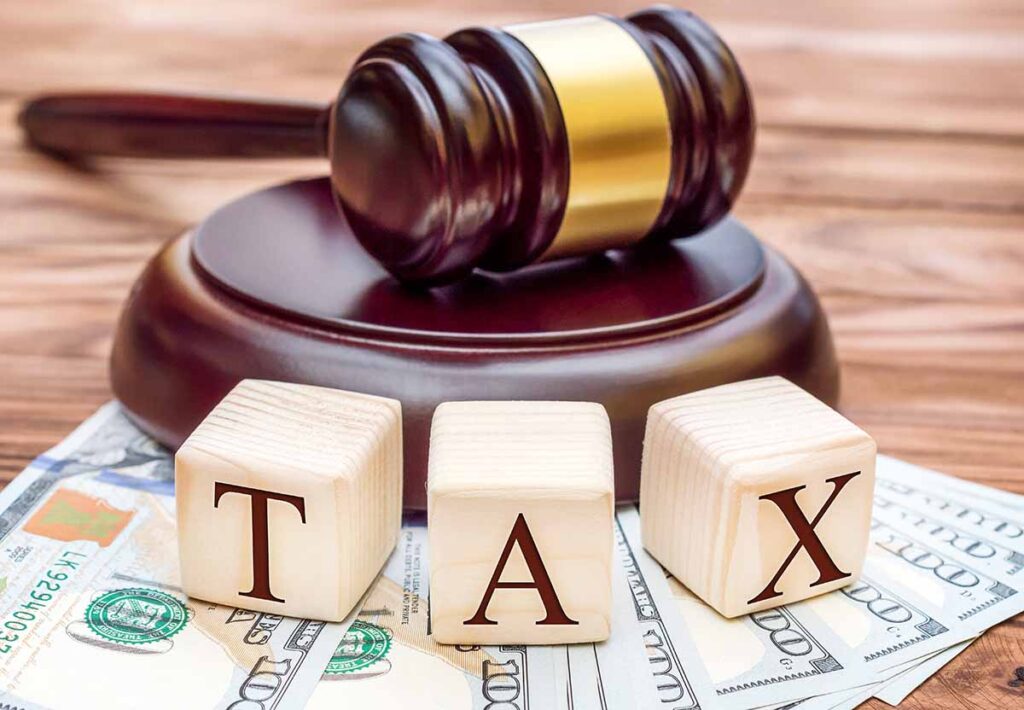What is an IRS Wage Garnishment or Levy

A wage garnishment is a specific type of tax levy where the IRS takes money directly from your paycheck. This is one of the most common levies the IRS uses, and it is incredibly serious. Wage garnishments continue until the IRS collects the tax liability plus interest and penalties, you make payment arrangements with the IRS, or the statute of limitations expires on the liability. But there can be other ways to stop a wage garnishment.
Types of Payments the IRS Can Garnish
The IRS can garnish your wages including commissions and bonuses, or even your Social Security benefits in some cases. If you are self-employed or an independent contractor, the IRS cannot garnish wages from an employer. However, the agency can seize rental income, accounts receivables (money your clients owe you), and funds from your bank account as well as other property. If the IRS decides to levy your wages, it will send Form 668–W(ICS), Form 668-W(C)DO, or a similar notice to your employer. The notice explains the garnishment process to your employer, and it includes guidelines on how much your employer should take from your check.
After receiving the garnishment notice, your employer should give you a Statement of Exemptions and Filing Status. This form requires you to note if you file single, married filing jointly, head of household, etc and your number of exemptions. For example, if you are married with one child, you generally claim three exemptions. You must return this form in three days. If you don’t return the form, the IRS assumes you are married filing separately with one exemption.
Based on your filing information, your employer uses Publication 1494 to determine how much to withhold. This publication allows you a certain amount of money for basic living expenses. For instance, as of 2018, if you are single with one exemption, you get $40.96 per day in take-home pay. If you are married filing jointly with five exemptions, you get to keep $129.81 per day. Your boss has to send any amounts over these thresholds directly to the IRS.
If your employer fails to send the demanded amounts, the IRS holds your company or responsible person personally liable. As a result, employers almost always comply with these demands. Note that it is illegal for your employer to fire you over a wage garnishment, but if you have two separate entities garnishing your wages, your employer may be able to dismiss you legally.
Child Support and Wage Garnishment
The IRS does not garnish wages earmarked for court-ordered child support. If those amounts are already being withheld from your paycheck, your employer automatically takes them into account when calculating how much to send to the IRS.
If you pay your child support on your own, you should contact the IRS directly. Ask your employer for the phone number from the letter they received. The IRS will allow you to keep those extra funds to make your support payments, but then, you cannot claim an exemption for that child.
How Long Does an IRS Wage Levy Last?
The IRS will continue with the garnishment until all of the taxes, penalties, and interest have been paid back in full. If you don’t make some other arrangement with the IRS, they will take the maximum amount allowed by law. The IRS uses wage garnishments as a last resort to collect on taxes owed after multiple notices have been sent with details on how to make other arrangements with the IRS on ways to pay. Generally, you can pay less per month or even nothing if you work with the IRS on other alternatives.
IRS Wage Garnishment Process & Rules to Garnish Wages

If you ignore your tax liability, the IRS has the right to seize many of your assets including your wages. With a wage garnishment, the IRS contacts your employer and tells them to send all of your wages over a certain amount to the IRS. Your employer will comply with the IRS because they will become personally liable for the amounts if they don’t collect. However, the IRS has to follow a specific protocol. To protect yourself, you should understand the laws and rules.
The IRS Laws on the Wage Garnishment Process
The IRS does not surprise taxpayers with wage garnishments. Before garnishing your wages, the IRS will notify you before the potential garnishment through several notices including CP77. The last one is an “intent of notice to levy.” After sending this notice, the IRS identifies the most convenient way to get the funds from you, and in most cases, that is a wage garnishment. The garnishment starts 30 days after you receive this notice.
For the IRS to legally garnish your wages or levy any of your other assets, the following steps must take place:
- The IRS assesses your tax liability and demands payment.
- You ignore the request for payment and don’t make arrangements with the IRS.
- The IRS sends a Final Notice of Intent to Levy and gives you 30 days to appeal or make arrangements.
Once these three steps happen, the IRS can and will garnish your wages. However, wage garnishments take time and energy. The IRS prefers to work out arrangements with the taxpayer. If you receive a final notice, try to make arrangements before the levy starts.
Notices The IRS Sends Before Garnishing Your Wages
As explained above, the IRS has to send you a notice of intent to levy before garnishing your wages. There are many different notices the IRS uses, and they include CP 504, CP90, LT 1058, LT11, and CP297.
CP 504 notifies you that the IRS plans to levy (seize) your state tax refund, and if that doesn’t cover your tax liability, the agency will start searching for other assets including wages to cover your tax liability. CP 90, LT 1058, and LT11 explain that the IRS plans to levy your assets for your tax liability and potentially place a lien against you. CP297 warns you that the IRS intends to seize your assets and advises you to submit Form 2848 (Power of Attorney and Declaration of Representative) if you have a tax professional helping you.
These notices contain slightly different wording, but they all boil down to the same message. They also notify you of your right to request a Collection Due Process hearing, and if applicable, they warn you that your passport may be seized. Usually, the agency only takes your passport if you have over $50,000 in tax liability.
Exceptions to the 30-Day Rule
There are a few cases where the IRS doesn’t have to give you a 30-day warning. They include the following:
- Jeopardy Levy — The IRS feels the tax collection is in jeopardy. For example, the IRS believes they might not get the funds because you might flee the country.
- Federal Contractors — The IRS can garnish your payments through the Federal Payment Levy Program.
- Disqualified Employment Tax Levy — If you owe payroll taxes on behalf of your employees and have requested a Collection Due Process hearing related to employment tax in the last two years, the IRS can seize assets for payroll tax related to other time periods.
- State Tax Refunds — The IRS doesn’t have to give you 30 days notice before seizing your state tax refund.
If these situations don’t apply, the IRS must give you 30-days notice before garnishing your wages or seizing your assets.
How Much Can the IRS Garnish?
The IRS cannot garnish all of your wages or a set percentage of them. Instead, the IRS has a published wage garnishment table that dictates how much of your take-home pay you get to keep, and your employer has to send the rest to the IRS. The amount you can keep varies depending on your filing status and the number of exemptions you claim. For example, if you are married filing jointly with three kids, you get to keep $649.04 per week (as of 2018, the IRS updates their IRS wage garnishment table each year).
Typically, if you earn minimum wage, your wages won’t be affected by a garnishment. However, if you are single or married filing separately with only one exemption, you are only allowed $40.96 per day, so even if you make minimum wage, the IRS will take about $13 per day.
The more you earn, the higher a percentage of your wages the IRS takes. For instance, if you are a single person making $100,000, the IRS will garnish about 90 percent of your wages.
On top of that, if you have two jobs and your wages from one job cover the threshold, the IRS can take 100 percent of your earnings from your other job. Similarly, if your employer gives you a bonus, the IRS can take all of that.
Wage Garnishment When You Are Self Employed
If you are self-employed, you don’t have traditional income, and the IRS can’t contact your employer to garnish your wages. However, the IRS can contact your clients and tell them to send payments directly to the IRS. The IRS can also levy your rental income, sales commissions, and almost any assets you have.
If you have questions about the wage garnishment process, contact a tax professional. They can help you stop the garnishment and find a solution for your tax liability. If you’re facing an IRS garnishment you need professional ANSWERS you can count on fast, but you don’t want to pay to get this information either. This is why we offer a 100% free consultation with a tax professional. Our honest, licensed professionals will evaluate your situation and provide you with the answers you need, so you can have the peace in mind and security of understanding your options. Chat with us live right now or call us if you prefer. We are NOT sales people, we’re true tax professionals.
We would love to help you solve your tax problem right away. If you’re ready you can contact us today.

